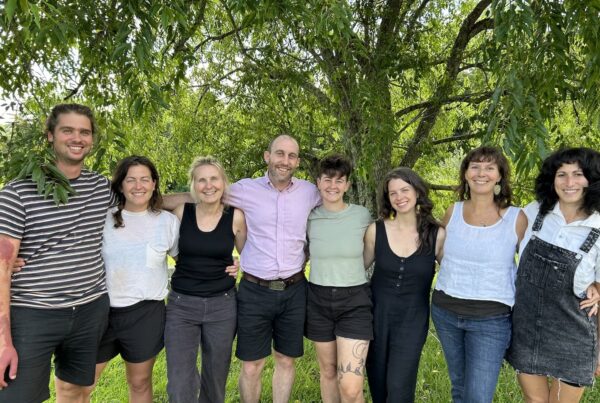All life is an experiment. The more experiments you make the better.
~Ralph Waldo Emerson
They act in the face of risk because their fear of not succeeding exceeds their fear of failing.
~ Adam Grant
Dear Springhouse community,
Lately, when I say that Springhouse is a community experimenting with educational design, I find myself hesitating when the word experiment comes out of my mouth. I stutter a bit, or whisper, like experimenting is a bad word, especially when it comes to education. Who are we to experiment with something that has been around for centuries and has mostly been about preserving the “norm”? Messing with tradition can feel dangerous, but what if the tradition is not serving us? Isn’t it more dangerous to continue with it?
The Springhouse staff has been reading Dr. Bettina Love’s book, We Want to Do More than Survive: Abolitionist Teaching and the Pursuit of Educational Freedom, for the past few months. Dr. Love would say, not only does the tradition of education not serve us, it is oppressing many (and she uses much stronger language than that). Before we start internally defending all of the teachers and administrators we know and love in education (there are way too many to count), who work tirelessly for our young people and are exhausted themselves, let me assure you that this is not about blaming anyone. No one person is at fault. Education, conventionally speaking, has oriented around the opposite of experimentation for centuries. It was built to pass down a certain way of being in the world – born from a time that is very different from now (and in some ways not so different, unfortunately).
Dr. Love talks about how essential public education is in a democracy. We must have free and accessible education for all of our citizens. In addition to free and accessible, education also needs to be life-giving – not just for the youth, but for all. We need education that wakes us up and inspires and strengthens us to respond courageously to the world’s emerging needs. To move toward that vision we must experiment – both within the current conventional system and outside of it.
Springhouse is responding to the challenges we face in education by experimenting with whole system educational design. At its root, the word experiment is associated with words like “to try,” “to risk,” “magic,” and “example.” Springhouse tries, risks, makes magic, and leads by example, co-creating a micro-culture that respects and brings forth life. We know that now is the time to experiment and move things around when it comes to the purpose and practice of education. We know that this is not easy, and we know it will only continue to get more difficult. A dear teacher once said to me, “If you are not experiencing resistance, you are doing nothing new.” These words light the way on the more difficult days.
I will close with this: In our all-school meeting today, I asked the community (adults and teens) the following question: What do you need to strengthen in yourself to be stronger when it comes to experimentation? Here are some of the things they said:
- Willingness to try crazy ideas
- Self-compassion for when I “fail”
- My sense of self worth
- My optimism
- Risk-taking skills
- Courage to share new ideas
- Confidence
- Trusting the process
- Being willing to let go
- Getting bold and speaking what I see
- Be more alert
- Get more informed
- Connection to my breath
Getting more comfortable with experimentation is essential if we are to live a vital and culturally responsive life. What if we created our educational design, and all that takes place inside of it, as a response to strengthening the skills named above? At Springhouse, we are – one day at a time. We welcome your support and your participation as we experiment together. We are enrolling in our 7th-12th grade program and our adult program (including an 18-month long fellowship – more to come on that!). We hope you will join us.
Ever onward in gratitude and love,
Jenny
PS- I recently wrote two articles: one on regenerative education and what it has to do with the old tale of the Skeleton Woman and the other on vitality-centered educational design.



